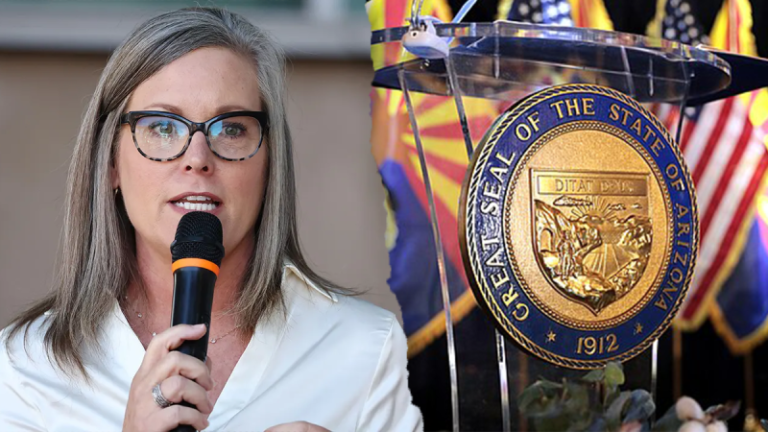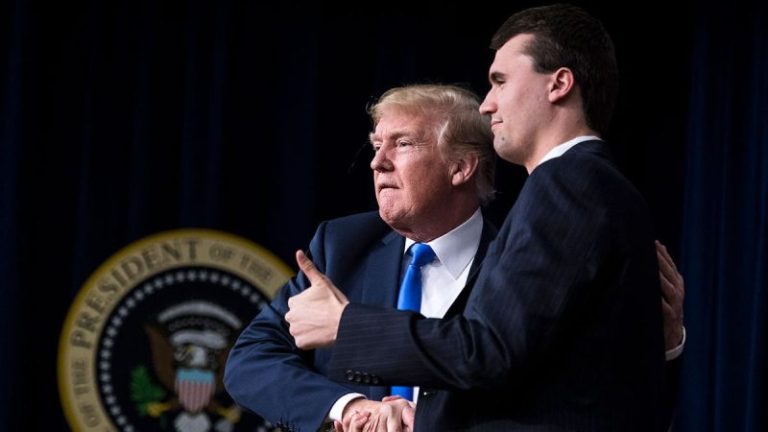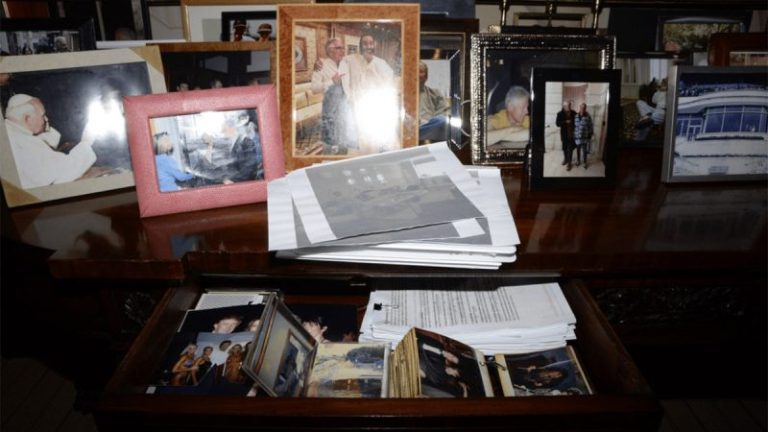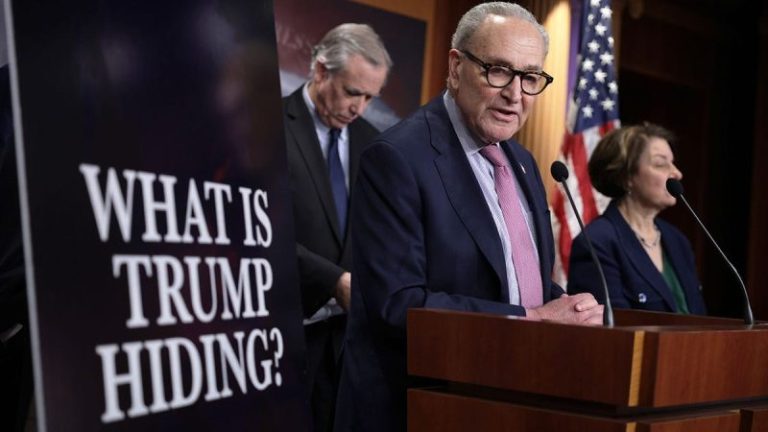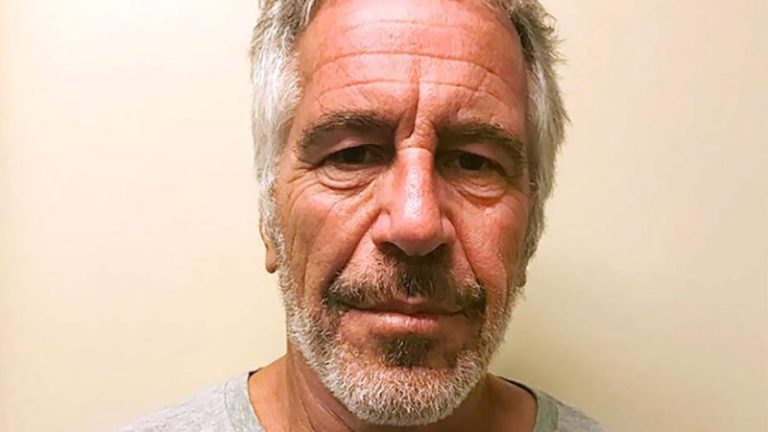While next year’s midterms will determine whether Republicans can keep control of Congress after winning big in 2024, there are also a slate of gubernatorial elections, several that are toss-ups, which could have equally wide-ranging impacts.
Three states with Democratic Party governors, Arizona, Michigan and Wisconsin, are currently listed as ‘toss up’ races across multiple high-profile election polling groups, such as The Cook Political Report and Sabato’s Crystal Ball. Meanwhile, Republicans will have to defend the governorship in Georgia and Nevada, two other races considered a ‘toss up’ by some, while others are giving Republicans a slight advantage. For example, Nevada and Georgia are considered a ‘toss up’ in The Cook Political Report’s latest polling that came out Dec. 20, but they are listed as ‘lean Republican’ by Sabato’s Crystal Ball.
‘Whether it’s Aaron Ford vacationing instead of doing his job in Nevada, Katie Hobbs tanking Arizona’s economy, or Jocelyn Benson letting non-residents vote in Michigan, Democrats are not sending their best to gubernatorial races next year,’ Regional Communications Director Delanie Bomar told Fox News Digital. ‘Republicans have a track record of winning these states and we will do so again next year.’
In Arizona, Democrat Governor Katie Hobbs will have to maintain her seat against long-time House Reps. Andy Biggs, R-Ariz., and David Schweikert, R-Ariz., as well as attorney Karrin Taylor Robson, who lost to Kari Lake in the GOP primary for governor in 2022.
In 2024, Hobbs was investigated for involvement in an alleged ‘pay-for-play’ scheme after a report revealed a group home business that looks after vulnerable children was approved for a rate hike after it donated big to her inauguration and the Arizona Democratic Party. However, Hobbs has pushed back against the allegations, arguing she was not personally involved in the rate decision. The controversy is still under criminal investigation by both the Arizona attorney general and the Maricopa County attorney, and the Arizona House also launched its own inquiry last month into the matter. Hobbs, who has had a lengthy political career dating back to 2010, has been criticized for how she treats her staff and who she hires, but also has a history of being able to rake in campaign funds and run successful elections.
In Michigan, Democratic Party Gov. Gretchen Whitmer will be term-limited out. Her secretary of State, Jocelyn Benson, is among the front-runners to take over Whitmer’s seat. Earlier this year, Fox News Digital reported about Benson’s attendance at a ‘unity’ dinner that featured decor threatening to assassinate President Donald Trump and equating his supporters with Nazis. Republican Michigan lawmakers have called on the Trump Justice Department to monitor Michigan’s 2026 elections, arguing there is an ‘inherent’ conflict associated with Benson, who is Michigan’s top election official, running while overseeing the state’s elections.
Wisconsin’s Democratic Party Gov. Tony Evers announced his retirement in July, indicating he will not seek a third term under the state’s unlimited term limit rules. As a result, the seat is up for grabs, with House Rep. Tom Tiffany, R-Wisc., and Wisconsin County Executive Josh Schoemann among the GOP front-runners. On the Democrat side, former Lt. Gov. Mandela Barnes, current Lt. Gov. Sara Rodriguez and Wisconsin County Executive David Crowley find themselves at the top of the heap.
Courtney Alexander, a spokesperson for the Republican Governor’s Association, pointed out how voters view governors’ races ‘through a unique prism’ following Trump’s first year of his second term. ‘They see that Republican-led states are more affordable and safer, while Democrat-led states are among the most expensive and have allowed their cities to become hellscapes of crime and homelessness,’ Alexander told Fox News Digital. ‘Americans have already voted with their feet, and that tells us everything we need to know about what to expect in 2026 — Democrats running at the gubernatorial level have records they cannot defend.’
Georgia and Nevada will have to be defended by Republicans if they hope to add to their GOP gubernatorial headcount. Georgia, which historically has been a Republican stronghold, has seen Democratic Party wins in the last several years, making it a place for hard-fought elections. Current Republican Gov. Brian Kemp is being term-limited. It was being mulled he might go to the U.S. Senate, but Kemp later waved off the rumors.
In 2026, there will be a total of 36 gubernatorial elections held on Nov. 3, 2026. The primaries for these races will be held at various times ahead of the scheduled general election date.
While not seen as a tough race for Republicans, Florida’s primary race has the ingredients for something interesting. The Sunshine State’s current GOP governor, Ron DeSantis, will be term-limited, and it is unclear who DeSantis desires to be his replacement after President Donald Trump endorsed GOP Rep. Byron Donalds, R-Fla. Thus far, DeSantis has not embraced Donalds as the best person to take over his office, like Trump. Rather, DeSantis has publicly hinted his wife, Casey DeSantis, could be a formidable contender. ‘She would do better than me,’ DeSantis told reporters earlier this year while discussing speculation about Florida’s first lady succeeding him. ‘There’s no question about that.’
Fox News Digital’s Michael Dorgan contributed to this report.

